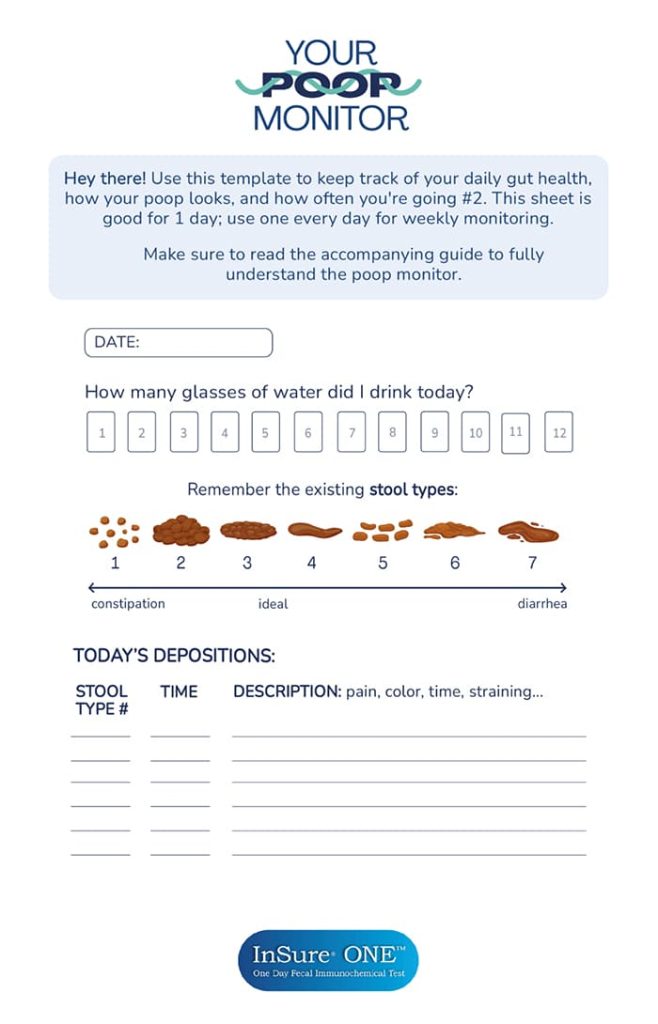When it comes to diseases such as cancer, it’s all too common to feel as though you have no power over whether or not they develop, especially if a certain cancer runs in your family. However, while risk factors such as genetics, age, and ethnicity are outside of our control, you still hold a lot of power in diminishing your cancer risk by modifying certain lifestyle factors.
Your lifestyle can often be just as (if not more) influential in your risk of developing cancer. This makes it vital for you to be aware of the controllable risk factors to make the necessary modifications and reduce your cancer risk as much as possible.
How To Reduce Your Colorectal Cancer Risk
The following 6 action steps address the lifestyle factors that increase colorectal cancer risk. Not only do they reduce your risk of this cancer, but they also improve your health as a whole, so it’s a win-win!
Reduce Red Meat Intake
We’re jumping in with a dietary change you can make to reduce your risk of colorectal cancer: reducing the amount of red meat you eat.
Red meat contains the chemical haem, which forms N-nitroso chemicals when broken down in the gut. These chemicals have been found to damage the cells lining the bowel, which can lead to cancer.
Studies have found that eating red meat in high amounts increases your risk of colon cancer by 28%, so this risk factor is not insignificant.
Meat-eaters, don’t worry; you don’t have to cut out this source of protein entirely. Instead, reduce the amount of red meat you eat and replace it with white meat. Instead of making red meat a regular meal, think of it as something to have only when celebrating—it’ll taste even better because you’ll be savoring the few times you enjoy it!
Quit Smoking
Those who smoke are shown to develop more numerous and bigger colon polyps because of how the cancer-causing particles and toxins in tobacco smoke hurt your tissue’s DNA. While not all colon polyps are cancerous, the more polyps someone has, the more likely that one of them becomes cancerous.
Tabaquismo increases your risk of colorectal cancer by 59%, but this risk drops to 19% if you used to smoke and quit. This makes quitting one of the most important things you can do to reduce your cancer risk.
Get Physical
When you are sedentary, you’re more likely to carry extra body weight, which can increase inflammation and insulin resistance, two factors that have been linked to colorectal cancer development.
Research shows that physical activity reduces your risk of colorectal cancer by 24%, so start adding this to your life. Even better, the more you exercise, the lower your risk of colon cancer.
If you’re new to exercising, take it easy. Start adding in some low-intensity exercises such as walking or even gardening. Whatever gets you up and moving and you find enjoyable, whether that’s bike riding, playing a sport, or dancing.
Reduce Alcohol Consumption
When your body metabolizes alcohol, it converts ethanol (alcohol) into metabolites that may damage the colon. For moderate drinkers, this equates to a 47% increased risk of colon cancer.
Instead of making alcohol a regular part of your lifestyle, reserve it for special occasions—any amount that you can cut down on will help preserve the health of your colon.
Manage Your Weight
When you’re overweight or obese, you’re more likely to have certain diseases, such as diabetes or heart disease, which are often present alongside colorectal cancer. By reducing your body weight, you can decrease your risk of developing these diseases and reduce your risk of colorectal cancer.
Those who are obese have a 30% greater risk of colorectal cancer compared to those who are within a normal weight range. Speak to your doctor about implementing dietary changes and instituting an exercise regimen to reduce your weight.
Laugh More
Physical exercise isn’t the only way to get your heart pumping. Have you ever laughed so hard that you can’t breathe? It’s because laughing speeds up your breathing, stimulates your heart, increases circulation, and aids muscle relaxation, which reduces the symptoms of stress. Laughing also releases endorphins, which have been shown to suppress tumor progression by reducing certain inflammatory markers.
Screening Recommendations for Colorectal Cancer
The above habits can help reduce your risk of colorectal cancer, but the best way to protect your health is by combining them with regular screening for colorectal cancer so that, if you develop it, you can detect it early for a prompt diagnosis and treatment.
For a quick and effective way to monitor your colorectal health, the InSure One Test offers a proactive annual screening. This test detects hidden blood in your stool, which could indicate colorectal cancer or other lower gastrointestinal diseases, all from the convenience of your home.
By adopting healthy habits and undergoing regular screenings, you can support a longer and healthier life for yourself. Get started by learning more about the InSure ONE Test and how it can help you better understand your colorectal health.
References
- Aykan N. F. (2015). Red Meat and Colorectal Cancer. Oncology reviews, 9(1), 288. https://doi.org/10.4081/oncol.2015.288
- Amitay, E. L., Carr, P. R., Jansen, L., Roth, W., Alwers, E., Herpel, E., Kloor, M., Hendrik Bläker, Chang-Claude, J., Brenner, H., & Hoffmeister, M. (2020). Smoking, alcohol consumption and colorectal cancer risk by molecular pathological subtypes and pathways. British Journal of Cancer, 122(11), 1604–1610. https://doi.org/10.1038/s41416-020-0803-0
- Oruç, Z., & Kaplan, M. A. (2019). Effect of exercise on colorectal cancer prevention and treatment. World journal of gastrointestinal oncology, 11(5), 348–366. https://doi.org/10.4251/wjgo.v11.i5.348
- Alcohol: Destroying Your Liver and Colon, Increasing Your Risk of Early CRC. (2023). Colon Cancer Foundation. https://coloncancerfoundation.org/alcohol-destroying-your-liver-and-colon-increasing-your-risk-of-early-crc/
- Mandic, M., Fatemeh Safizadeh, Niedermaier, T., Hoffmeister, M., & Brenner, H. (2023). Association of Overweight, Obesity, and Recent Weight Loss With Colorectal Cancer Risk. JAMA Network Open, 6(4), e239556–e239556. https://doi.org/10.1001/jamanetworkopen.2023.9556
- Shrihari T. G. (2019). BETA ENDORPHINS – HOLISTIC THERAPEUTIC APPROACH TO CANCER. Annals of Ibadan postgraduate medicine, 17(2), 111–114.

